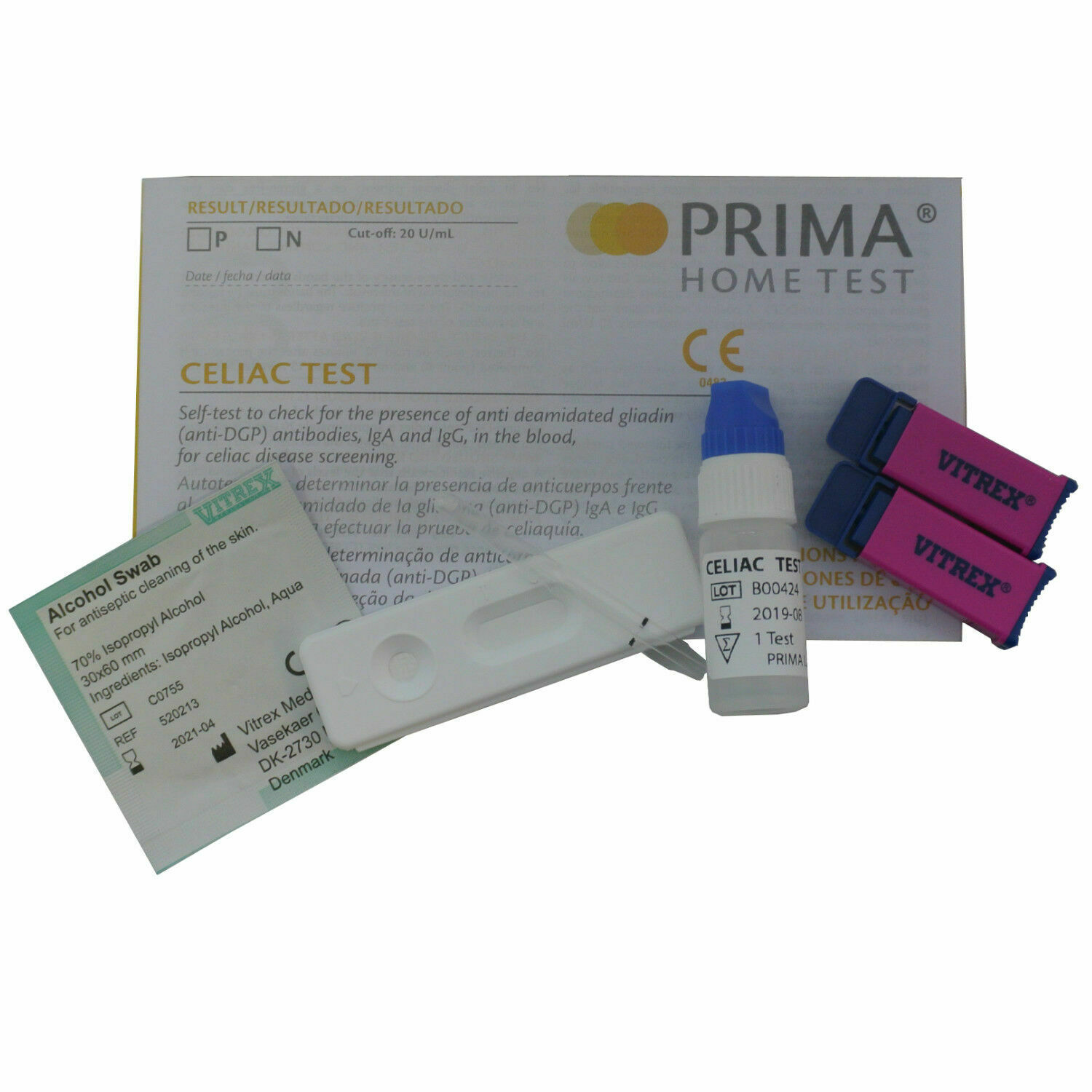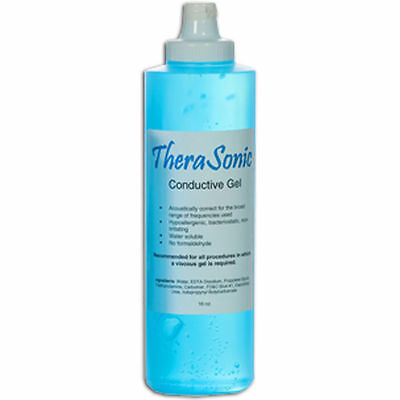-40%
Coeliac Test Celiac Disease Wheat Gluten Intolerance Allergy Food Kit
$ 15.83
- Description
- Size Guide
Description
SHIPS FROM US 2-3 DAY DELIVERY VIA PRIORITY MAILWhat is Coeliac Disease?
Coeliac disease is a common digestive condition where the small intestine becomes inflamed and unable to absorb nutrients. It affects about 1% of the UK population, with experts warning that the actual amount of people affected will be much higher because milder cases may go undiagnosed or be misdiagnosed as other digestive conditions, such as irritable bowel syndrome (IBS). Reported cases of coeliac disease are two to three times higher in women than men and it can develop at any age.
Coeliac disease is caused by an adverse reaction to gluten.
What foods contain gluten?
Gluten is a dietary protein found in any food that contains wheat, barley and rye, including pasta, cakes, bread, breakfast cereal and beer.
What are the symptoms of coeliac disease?
Eating foods containing gluten can trigger a range of gut-related symptoms, such as diarrhoea, abdominal pain, bloating and flatulence (passing wind), indigestion and constipation.
It can also cause a number of more general symptoms, including fatigue, unexpected weight loss and an itchy rash.
Why do I need this test?
There is no cure for coeliac disease, but switching to a gluten-free diet should help control symptoms and prevent the long-term consequences of the condition. Even if you have non-existent or mild symptoms, changing your diet is still recommended because continuing to eat gluten can lead to serious complications. Therefore, it is important to get a diagnosis so that you can make the necessary changes.
How does the test work?
The test detects the presence of the antibodies IgA and IgG, which have been proven to be present in those that suffer from gluten intolerance.
How do I perform the test?
It is very simple ? just make sure your hands are clean and warm and then obtain a blood drop using the lancets included and transfer to the test cassette. Then just add 3 drops of the buffer solution and then read your results after 10 minutes. If you get just a control line, then this is a negative result for Coeliac disease; if you get 2 lines then this indicates a positive result for Coeliac disease.
What do I do if I get a positive result?
You should consult with your GP for advice on the next steps, which will include altering your diet to reduce or eradicate gluten intake.
When should I take the test?
It is recommended to take the test when you are experiencing symptoms of Coeliac disease as outlined above. It can be done any time of day, on a full or empty stomach.
Is the test suitable for people on a gluten-free diet?
No ? the antibodies will not be present if you are not ingesting any gluten based food/drink.









